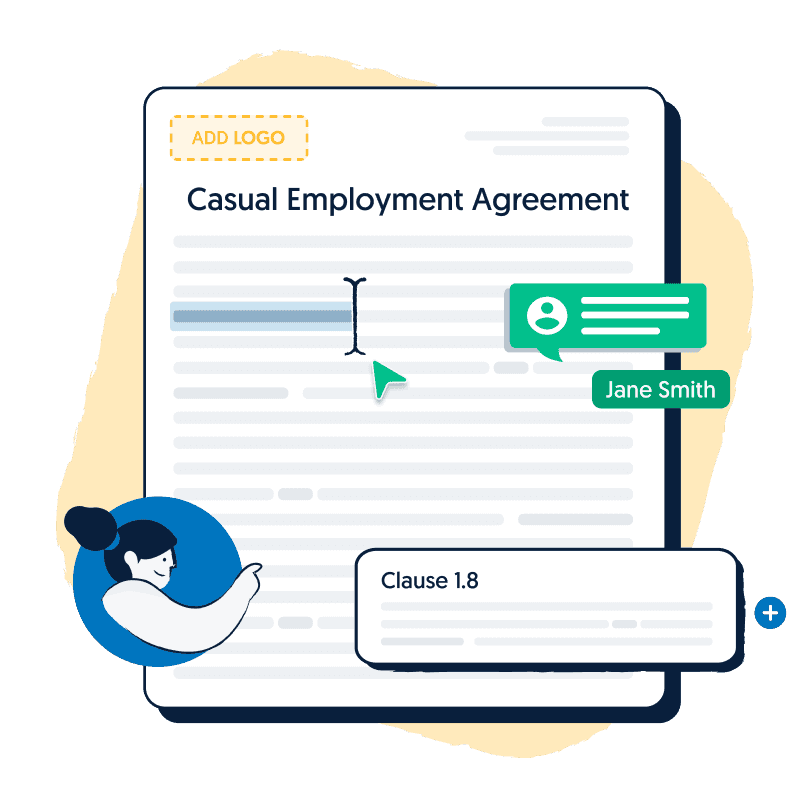If you run a business and have employees, you should be familiar with NES. It is extremely important that all employers abide by the employment entitlements laid down by NES. However, employers could be in trouble if they are undercutting these entitlements. This article will briefly outline what is meant by NES and the 11 employment entitlements.
What is NES?
NES is short for National Employment Standards, and as its name suggests, it is a list of the minimum employment standards. As the NES are national standards, they apply to all employees in Australia. Furthermore, as NES contains the minimum standards, these standards cannot be contracted out of. Thus, it is illegal for employers to provide conditions that do not meet NES. Any entitlements that are provided for in any award, enterprise agreement or employment contract must not undermine NES. Therefore, awards, enterprise agreements and employment contracts can provide for additional employment entitlements but not less than the NES.
So, to ensure that you are running your business and managing your employees in accordance with NES, here are the 11 employment entitlements and standards:
1. Maximum Weekly Hours
Many employers are well aware of the fact that they usually cannot request that an employee work more than 38 hours per week. However, there are circumstances that allow employers to request their employees to work some additional hours. But, any hours that exceed 38 hours per week must be reasonable. To determine the reasonableness of additional work hours, the court will consider:
- Employees personal circumstances, working role and family responsibilities,
- Whether notice to work additional hours was provided for,
- Whether overtime/penalty rates will be provided for.
2. Flexible Working Arrangements
Under NES, employees who have worked for the same employer for at least 12 months can request that their employer consider flexible working arrangements. Flexible working arrangements may include, changes to work hours, work patterns or locations (e.g. working from home). Additionally, NES outlines that certain employees requests must be reasonably and respectfully considered. To find out who these certain employees are, follow this link.
3. Requests and Offers of Casual Conversion
Now, this may be a new one for you. A casual employee, whom has worked for their employer for 12 months, must receive an offer to covert their employment to either part-time or full-time employment. Please note, this requirement does not apply to employers of small businesses. In other words, if you are a small business employer, you are not required to following this conversion entitlement.

Get your Casual Employment Agreement now for free.
Hire casual employees in any industry. This Employment Agreement (Casual) is essential when hiring new employees for your business.
4. Parental Entitlements
Employees who have worked for their employer for at least 12 months will be eligible for all parental leave entitlements. These entitlements include: maternity leave, paternity and partner leave, adoption leave and special maternity leave. Further, it is extremely important that all employers abide by parental leave entitlements, as refusing to offer these entitlements can give rise to your employees bringing claims of Discrimination and Unfair Dismissal.
5. Annual Leave
Many employers and employees are aware of the 4 weeks annual leave entitlement. However, many do not know that it originated from NES. Now, 4 weeks is the minimum entitlement, however your modern award, enterprise agreement or employment contract may stipulate for larger amounts of leave. For instance, shift workers generally accrue more than 4 weeks due to the strenuous hours of work. To calculate how much annual leave your employer should be providing, check out Fair Work’s Annual Leave Tool.
6. Personal/Carer’s Leave, Compassionate Leave and Unpaid Family/Domestic Violence Leave
Personal and carer’s leave, also known as sick leave, refers to the 10 days of leave available to employees who are ill or must care for an ill family member. Alternatively, compassionate leave is only available for 2 days and is commonly taken when an employees family member dies or develops a serious illness or condition. Also, employees may take up to 5 days of unpaid family and domestic violence leave if they are experiencing violence at the hands of a close relative.
7. Community Service Leave
This type of leave may only be taken when employees are required for voluntary community activities, such as jury duty. If the activity is some activity other than jury duty, then the leave is generally unpaid.
8. Long Service Leave
Long service leave is the amount of leave that an employee accrues from having worked for the same employer for a sufficient period of time. Even though long service leave is an employment entitlement that originates from the NES, each state and territory have different laws pertaining to this type of leave. However, if you have been working for your employer before the enactment of the modern awards, being before 1 January 2010, your long service leave entitlements will come from the pre-modern awards.
9. Public Holidays
Most employees will receive time off work on public holidays. Only the public holidays of the state or territory your employment is based in will apply to your employment entitlements. In NSW, public holidays include:
- Monday 2 August – Bank Holiday
- Monday 4 October – Labour Day
- Saturday 25 December – Christmas Day
- Sunday 26 December – Boxing Day
- Monday 27 December – Additional public holiday for Christmas Day
- Tuesday 28 December – Additional public holiday for Boxing Day
10. Notice of Termination and Redundancy Pay
Both employers and employees should give each other notice of the termination of their employment relationship. Notice is an extremely important aspect of Employment Law and includes many different rules and legal requirements. A Letter of Resignation is the most common way to give notice. However, if your employment ends because of a genuine redundancy, the redundant employee shall receive at least 16 weeks of severance pay.
11. Fair Work Information Statement and Casual Employment Information Statement
All employers must provide new employees with a copy of the Fair Work Information Statement or Casual Employment Information Statement. Importantly, these statements set out all aspects of the NES to ensure new employees are informed about their rights and responsibilities. These statements can be found on the Fair Work Website.
Key Takeaways
There are 11 employment entitlements that make up the NES. All employers must abide by the 11 NES and cannot contract out of its terms and requirements. An award, enterprise agreement or employment contract may provide for additional entitlements, so long as they do not provide for lesser entitlements. NES has the objective are creating consistent employment entitlements, to ensure all working Australians are being well compensated for their hard work and efforts.

Get a fixed-fee quote from Australia's largest lawyer marketplace.






